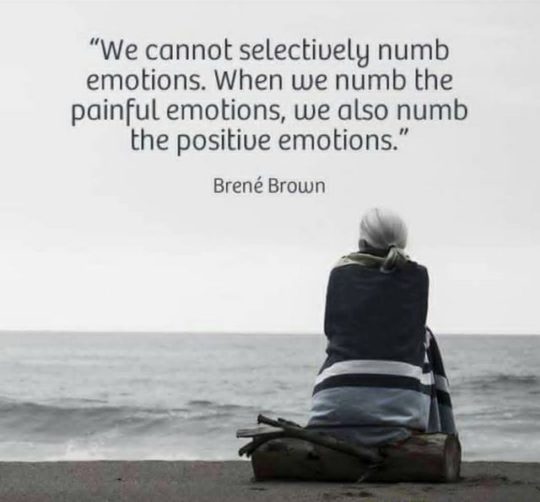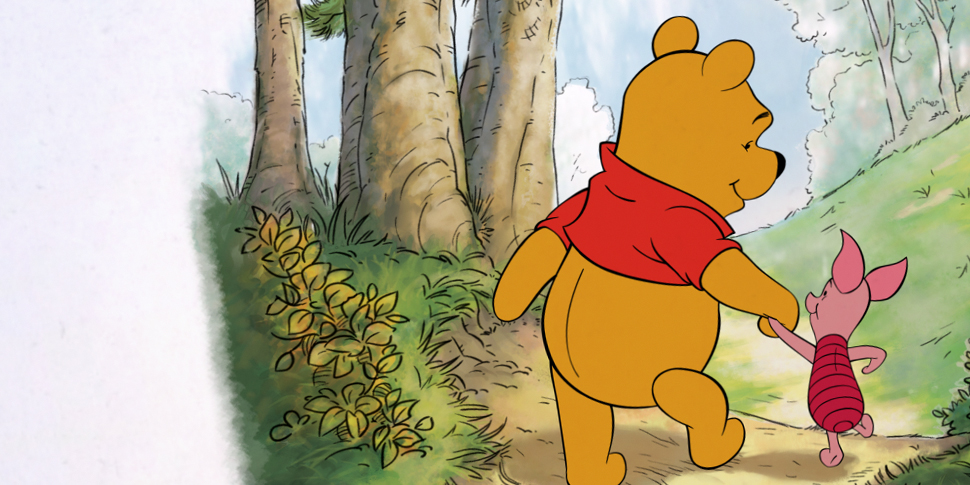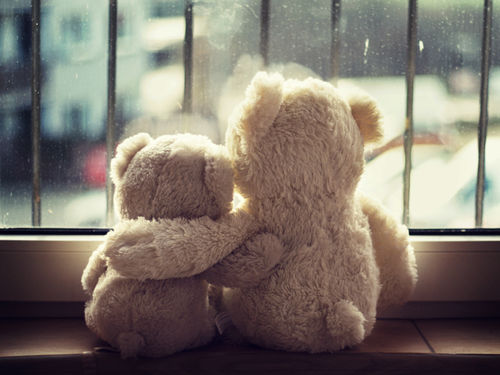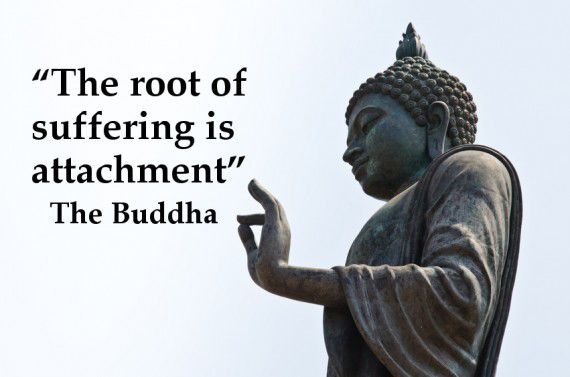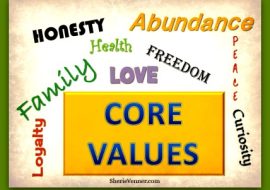Have you ever gone into a fit of rage and come out barely remembering what you said or how you got there in the first place? Have you ever let your emotions be in control?
I think this is true for many of us. So when I found this article by psychotherapist Danielle Benvenuto I felt it was worth sharing. She uses my favorite approach to life: Mindfulness
Here you go:
Have you ever been seized by sheer panic while waiting for a response from your new crush, a state so powerful that sending a text message every hour on the hour, wondering aloud if something terrible happened, felt like a good idea?
Have you ever convinced yourself that you’re not good enough, cool enough, smart enough, pretty enough, woman enough, man enough, tall enough, skinny enough, (fill in the blank) enough and that the whole entire world must think so too?
We all have our triggers—certain experiences that take us to emotional places we prefer not to go.
For some, it’s feeling neglected. For others, it’s being criticized. The list is a long one. We all have our own set of life experiences that help to create a place where our emotions can get the best of us. I have dealt with a fair share of my own and because my line of work is in healing, I witness it every day and in many different forms.
So how exactly do we get held hostage by our emotional states? And what can we do to find our way back to solid ground, where we can see things from a clearer perspective?
Here are two fundamental ways we allow our emotions to get the best of us and how the power of mindfulness techniques can help. They not only help to ground us when we’re losing our grip on reality, but also foster a more solid foundation so that, over time, we can catch ourselves before we slip down into that much-dreaded but familiar rabbit hole of emotion.
Two things that contribute to emotion overload:
We go on the chase.
The moment we start chasing a train of thought or emotion, we begin to hand our power over to it. We do this when we judge, obsess, and over-analyze.
For example: You are feeling anxious because you have an important job interview. You begin the “chase” by thinking: I’m probably not going to do well on this interview. This thought causes anxiety and uncomfortable sensations in your body. In response to the anxiety, more thoughts occur: I bet normal people don’t feel this way. I’m such a mess. Why do I feel weird? I need a drink. Why am I such an anxious person? Which contributes to even more anxiety: I’m going to completely bomb this interview. I must get rid of this anxiety right now…but, wait, I have no clue how to do that either. I must be a failure at everything!
Instead of giving the anxiety-provoking thoughts and feelings space to breathe and make their way through uninterrupted, they get amplified by a judgmental attitude similar to the above and flare up like an out-of-control fire. One of things we don’t want to happen while in the midst trying to put out that fire is for massive gusts of wind to pass through.
Imagine this fire as an emotional state you are prone to experiencing and a strong, forceful wind as the judgmental stance you typically take about this particular emotional state. We make ourselves feel worse by fanning our emotional flames, and more importantly, we leave no room for our feelings to naturally die down with time, which, by the way, is what emotions typically do if given the chance!
If we don’t create space, we also don’t allow room for reason or intuition to emerge to help with whatever we’re experiencing.
The mindful alternative:
Mindfulness asks us to take a curious, open, and non-judgmental stance to all that passes through our minds. For example, say: I think that I am not good at job interviews and this is causing me to feel anxious. Or: Right now, I am experiencing anxiety. It’s important to not make meaning out of the feeling or have it be a reflection of your self-worth or the current reality.
Instead, observe it by saying something like: “I must be a failure” is a thought that is passing through my mind. I’m feeling like a mess, but this doesn’t mean I am a mess. It can be helpful while making these statements to hold your heart. Doing this sends the communication that you are here for yourself while sending loving energy through your hands. This reminds me of Thich Nhat Hanh’s to difficult feelings, in which he advises us to say, “Anxiety, I am here for you.” Replace anxiety with whatever emotion you are experiencing that you want to fight or judge.
Another approach is to imagine the thought as a cloud passing through the sky. The sky is your essence, pure and untainted by the self-defeating narratives you make up about yourself, and feelings and thoughts are the weather (a cloud, a snowstorm, rain), which is always subject to change. Watch the thoughts and feelings as phenomenon passing through you, instead of being you.
It can be helpful to find an anchor back to the present moment—using your breath or the sensation of your feet touching the floor—when you find yourself drifting away.
We Give The Silent Treatment.
The second mode we engage in is denying our thoughts and feelings their right to exist. Repressing thoughts and feelings, however, only makes them fight more adamantly for self-expression.
Looking through a scientific lens, feelings are energy, and since energy can’t be destroyed, the energy that comprises the feeling will find a form of expression regardless of our attempts to block it. In my personal and professional experience, this usually occurs through an experience that feels overwhelming and often completely alien. Depression or ongoing panic attacks—with no identifiable trigger or psychosomatic symptoms that have no medical diagnosis—may emerge.
We typically repress our feelings because we were taught through our various life experiences that it isn’t safe to have them. If anger is not an acceptable emotion to have, you will have belief systems in place that check the emergence of an angry feeling. However, eventually this system fails.
For example, you are angry because you find yourself more often than not taking care of other peoples’ needs before your own. You don’t assert yourself when you need to, and you ignore the anger you feel brewing at being taken advantage of. You question whether or not you have the right to get what you need. You’ve been doing this for years, thanks to an upbringing where self-sacrifice was the way you were taught to give and receive love. Alas, you find yourself in a fit of rage saying something hurtful to someone, barely remembering what you said, and then feeling guilty for losing control.
The mindful alternative:
Give yourself permission to have your feelings by honoring them as they arise: “I feel anger and l will take care of this feeling by letting it unfold and, if it helps, understanding what it is asking of me or trying to tell me.” Talk out the feeling with a friend or a therapist. Often, we don’t always know what we are feeling and by voicing it to another, insights about ourselves begin to take shape.
If a feeling doesn’t feel safe to express, start by journaling about it or noticing where it resides in your body. Walking or running is also helpful, especially since physical activity can help release emotional energy being stored in the body. This approach is particularly helpful when intense emotions are passing through and sitting with them feels nearly impossible. While moving your body, practice the same non-judgmental and open attitude I mentioned earlier with whatever emotional state is moving through you.
~
As you can see, the vicious cycle of being emotionally held hostage ensues in either mode.
If we switch to a mindful approach, where we observe our thoughts and feelings rather than chase or ignore them, we create a space to see how things truly are, instead of how our limited egos and the narratives we have been telling ourselves make them out to be.
This space we create becomes an anchor and with time, this space becomes a solid structure within ourselves—a home within our own bodies—where we can enter into a positive and more caring relationship with ourselves.
Author: Danielle Benvenuto
Read her article at https://www.elephantjournal.com/2017/02/how-to-stop-letting-our-emotions-hold-us-hostage/




